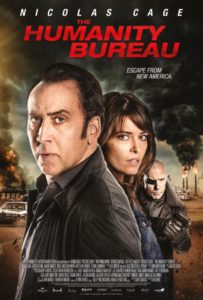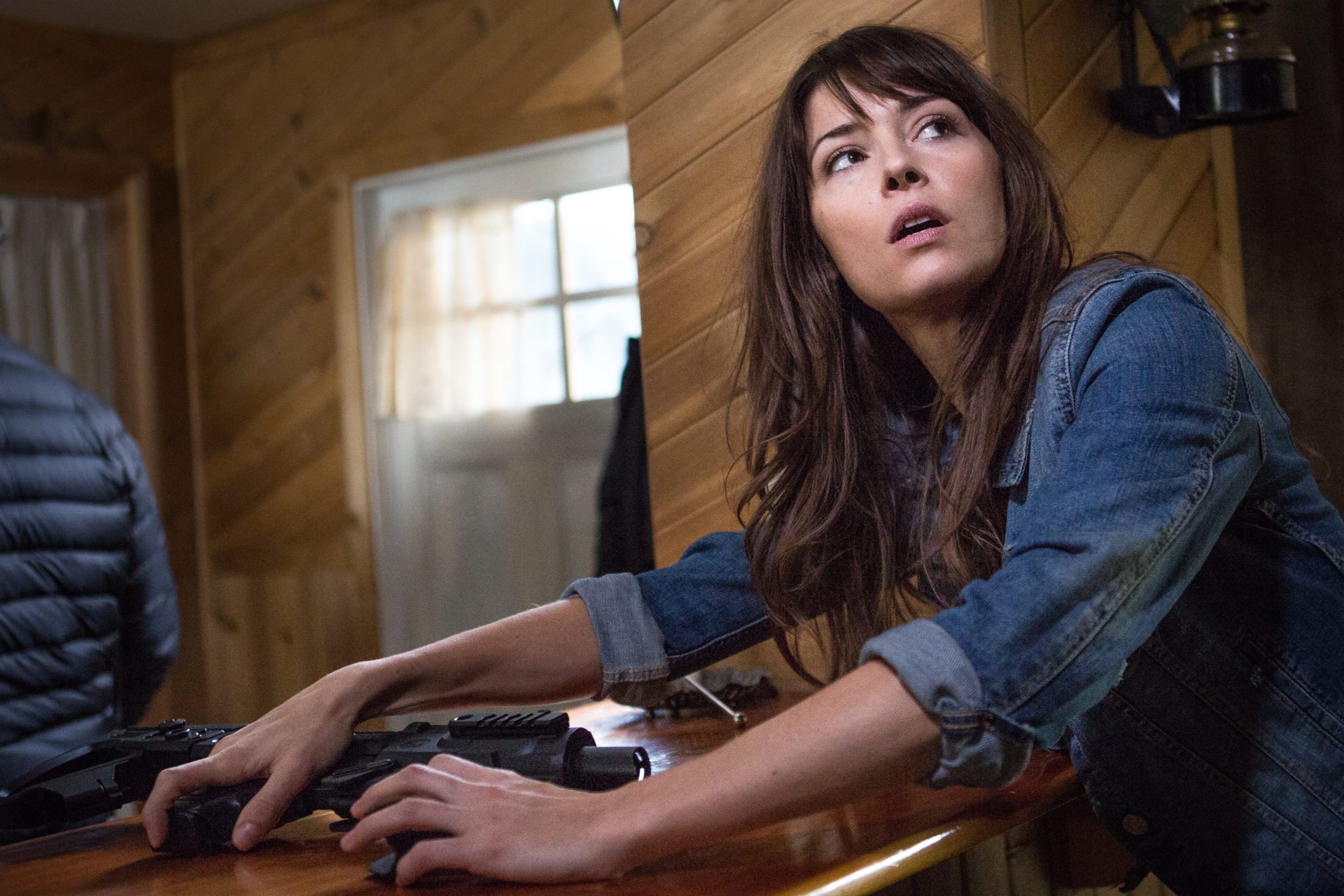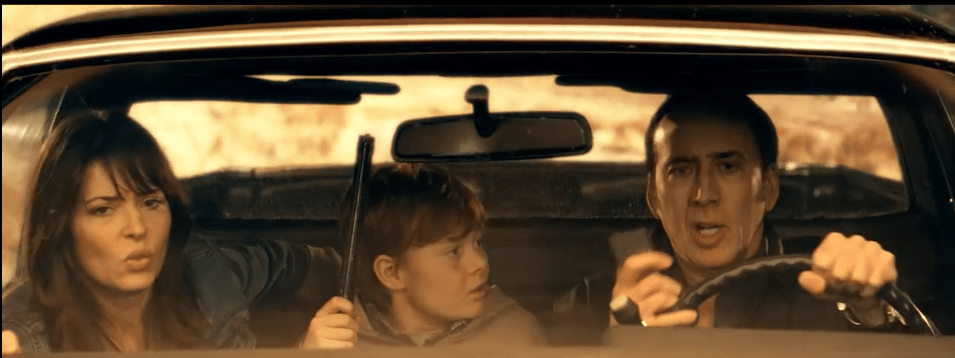 In the America of 2030, global warming, nuclear meltdowns, and a massive recession have created the need for a harsher, more disciplined social order. Enforcing that order is a government agency known as The Humanity Bureau. Its draconian mandate: remove all unproductive members from society—those who consume more than they produce. (A not so subtle reference to merit-based immigration and welfare-abusing sycophants.) Slackers are arrested and hastily “transferred” to a place called New Eden, which is depicted as paradise in billboards across the vast desert wasteland.
In the America of 2030, global warming, nuclear meltdowns, and a massive recession have created the need for a harsher, more disciplined social order. Enforcing that order is a government agency known as The Humanity Bureau. Its draconian mandate: remove all unproductive members from society—those who consume more than they produce. (A not so subtle reference to merit-based immigration and welfare-abusing sycophants.) Slackers are arrested and hastily “transferred” to a place called New Eden, which is depicted as paradise in billboards across the vast desert wasteland.
Up for promotion is Bureau agent Noah Kross (Nicolas Cage), whose brooding voiceover brings us up to speed on his job. Melancholy throughout, we get the feeling Cage isn’t exactly down with his métier. One also gets the sense that he’s walking through this film. We don’t see the quirkiness, the emotional range Cage so eloquently displayed in earlier films. As in the action-packed thriller “Face Off” or the weirdly eccentric, no-holds-barred “Raising Arizona.” Everything from the sets to a story that just tapers off into mediocrity has us wanting more.

Director Rob W. King and screenwriter Dave Schultz hit most of the perfunctory notes your basic sci-fi fan needs. But for some reason, they just stop as if they ran out of ‘creative gas.’ Granted, we’re basically in a desert road movie here, but where’s the wow factor one finds in the introspective “Matrix” or the bleakly futuristic “Blade Runner”? Yes, the aforementioned were buoyed by lots of visual ‘candy.’ Even so, those stories were deep with surprises and reversals (not that more candy wouldn’t have helped immeasurably here).

Even the political messaging is blunt and in your face. When Chester, an unproductive senior citizen is advised by Noah to leave, the old geezer goes into an on-the-nose monologue as predictable as a desert sunrise. A faded photo of a younger Chester with Trump in the White House intimates that Chester helped ‘Make America Great.’ “I’m a US citizen, I know my rights!” snaps Chester. After resisting displacement by trying to off Noah with a shotgun, Noah beats him to the draw, dons his ‘sorry about that’ expression and it’s on to the next case.

The next ‘slackers’ on Noah’s list are single mother Rachel Weller (Sarah Lind) and her son Lucas (Jakob Davies). The chink in Noah’s armor deepens a bit as he begins to bond with Lucas and Rachel. So much so that he takes them under his wing in a plan to escape their New Eden fate.
To justify this move, we have the obligatory expository scene that finally sheds light on the Bureau’s motives. This, delivered by bald, black-trench-coated bureau agent Adam Westinghouse (Hugh Dillon). He informs Noah what we’ve long suspected: New Eden may be what ‘Carousel’ was to “Logan’s Run.” (Although, one has to wonder why Noah didn’t know all along the fate that awaits those sent to New Eden.) Dillon’s performance is a bit cartoonish but effective. As is the evil government-man stereotype. Can we go against type at least once in these low-budget sci-fi films?

Our threesome’s trek to Canada is filled with bouncing-car desert chase scenes, Rachel-Luke-Noah banter, and some fierce gunfights with Bureau agents. At this point, “Bureau” descends from sci-fi flick to a “Truth or Consequences” or “Desert Saints” shoot-em-up. When the action finally settles down, we’re filled in with more exposition that reveals Rachel’s past and Noah’s deeper more familial connection with Lucas. Cage finally gives us some humanity in these scenes. It’s a break we sorely need.
Eventually, Noah guides his charges to the Canadian border with the help of some colorfully costumed off-grid resistance fighters. The violent, confrontational ending is lukewarmly satisfying at best. Heavy-handed and in your face, this scene could have been re-written to fit a more non-political agenda.

Overall, one has to wonder if extra dollars could have been spent on better costumes and set design. Improvements in these areas might have made “Bureau” more visually interesting to watch. On that note, it would be enlightening to see how the better half lived in the cities—those productive members of society who contribute more than they take from the government (another reason to hate those nasty ‘0ne percenters’).

“The Humanity Bureau” is clearly a message film. Big corporations are bad–bad for people, bad for the environment. And those who carry their weight deserve to live lavishly like Panem citizens in “Hunger Games.” If you can take the finger-wagging that “Bureau” dishes out, it’s worth a watch.






